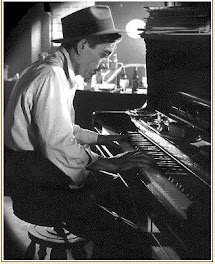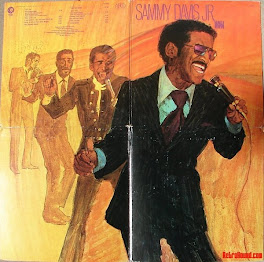The discursive writer writes as an act of conscious will, and that conscious will, along with the symbolic system he employs for it, is set over against the body of things he is describing.
But the poet, who writes creatively rather than deliberately, is not the father of his poem; he is at best a midwife, or, more accurately still, the womb of Mother Nature herself: her privates, he, so to speak.
The fact that revision is possible, that a poet can make changes in a poem not because he likes them better but because they are better, shows clearly that the poet has to give birth to the poem as it passes through his mind.
He is reponsible for delivering it in as uninjured a state as possible, and if the poem is alive, it is equally anxious to be rid of him, and screams to be cut loose from all the navel-strings and feeding-tubes of his ego.
-- Northrop Frye







































Oh I agree
ReplyDeletemy first visit here. interesting blog :)
ReplyDeleteWords As Living Human Tissue! I Like That Idea!
ReplyDeletei like the idea of giving birth to a poem after having been pregnant with it for a while - and then - let go..
ReplyDeleteOn the surface I cannot disagree with this particular description of the creative nature of a poem/poet. However, in reading Frye, my tiny little mind gets quite twisted in knots with his sometimes circular reasonings that try to turn the critic's efforts into a science. I can understand his approach to criticism being separate, if you will, from literature. But I can't for the life of me understand why anyone would really care.
ReplyDeleteMe thinks Mr. Frye doth over think the subject just a tad too much. If only I had as much time on my hands to "create a science" as Mr. Frye apparently did during his lifetime!
Even then, I'd probably want to just throw in the towel and knock back a couple of cold ones!
Rick
A midwife. I like that. Yes, it's very much like that.
ReplyDeleteSuz,
ReplyDeleteI'm glad. Not enough seem to take it this way.
Trulyfool
Aparna,
ReplyDeleteThanks for dropping by -- I'll visit soon!
Trulyfool
Tony,
ReplyDeleteWithout being too 'ideal' about it, words have come to be the shaper of much reality I experience. Yes, there are brute physical and social forces not far enough from my face.
Those forces can harm and end me, and brutality wants all meaning to boil down to just that. It's the worst of 'reductive materialism' -- anything beyond survival is self-deception.
I prefer a 'materialism' that at least lives and breathes and creates.
Living Human Tissue -- right on! I couldn't have said it better!
Trulyfool
comes only in words.
Claudia,
ReplyDeleteYes. And I like that Frye suggests it as something more than 'simply' an apt metaphor -- as a reality!
Trulyfool
Rick,
ReplyDeleteI agree. Frye is a mountain to climb. Picking up his books, I find myself every two pages with ideas I'd fumbled with, and he nails them into a 300-page book structure, every chapter enormously filled with sharp notions.
He does make my mind spin.
And making criticism an articulated approach to literature -- a kind of 'science' -- is a huge undertaking. I don't know where the profs come down on him. He's certainly a seminal figure.
(You got the churchkey?)
Trulyfool
Tess,
ReplyDeleteYou, too, 'got the religion'!
These 'literary births' don't even have a regular gestation period we can count on.
And sometimes: false labor.
TFool
no they do not have a gestation period as most living creatures...and their bith can be rapid or labored...but never induced....truly enjoyed the reading of this...thank you...bkm
ReplyDeleteBarbara,
ReplyDeleteFrye surprises and enlightens, every page!
Trulyfool